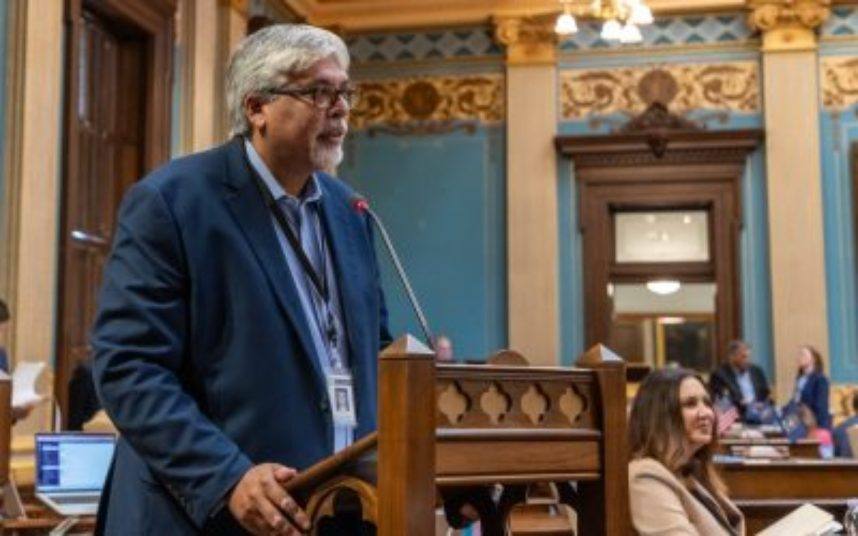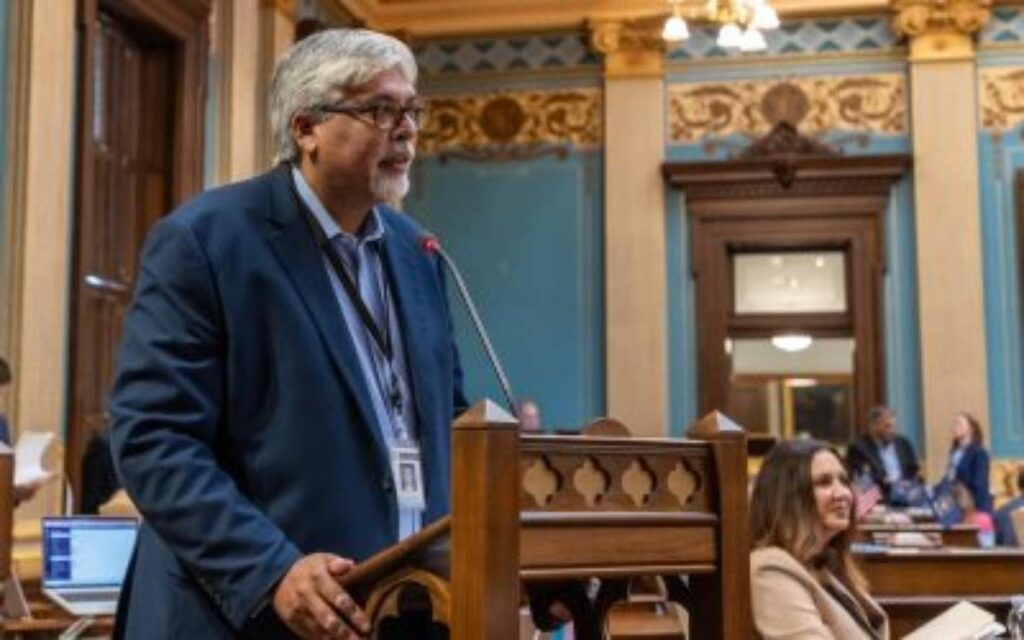Posted on: December 13, 2024, 02:13h.
Last updated on: December 13, 2024, 02:38h.
Legislation recently introduced to the Michigan Senate seeks to raise taxes on commercial revenue generated from online casino gambling and both retail and mobile sports betting.

Earlier this month, state Sens. Sam Singh (D-East Lansing) and Jeremy Moss (D-Southfield) filed Senate Bills 1193 and 1194. The statutes propose increasing sports and iGaming taxes on commercial operators.
SB1193 would elevate the tax on gross sportsbook win for both online and retail operations by 0.1% from 8.4% to 8.5%. SB1194 would increase the levy on gross gaming revenue (GGR) from commercial iGaming websites and apps by 1%.
Michigan taxes iGaming on a graduated scale. For iGaming operators that generate annual GGR of less than $4 million a year, the tax would climb from 20% to 21%. For revenue of $4 million to $8 million, the tax would increase from 22% to 23%, and for revenue ranging from $8 million to $10 million, the tax would go from 24% to 25%.
iGaming win from $10 million to $12 million would be subject to a 27% tax and for revenue upwards of $12 million, the toll would increase to 29%.
SB1193 and SB1194 have both been directed to the Senate Government Operations Committee. Singh is the majority vice chair and Moss is a member of the five-senator committee.
Operator Opposition
Singh and Moss’ bills wouldn’t impact how much tribes pay on their online gaming and retail and online sports betting revenue. The measures would only increase tax rates on commercial operations. For a change to tribal sports betting and iGaming tax rates, amendments to the Native Americans’ Class III gaming compacts would be needed.
Detroit is the only place in Michigan where commercial casinos operate. In December 2019, state lawmakers expanded gaming to permit the three properties — MGM Grand Detroit, MotorCity, and Hollywood Casino at Greektown — to move online with interactive casino, poker, and sports betting.
The 2019 gaming expansion package allowed each Detroit casino to run a single iGaming and sportsbook skin. MGM is partnered with BetMGM, MotorCity with FanDuel, and Hollywood Greektown with ESPN Bet.
BetMGM, FanDuel, and ESPN Bet naturally oppose Singh and Moss’s proposed tax increases. Though the suggested tax increase is only 1% on iGaming revenue and 0.1% on sports, the commercial gaming firms say the higher rate will put them at a competitive disadvantage against iGaming and sportsbooks partnered with Indian tribes.
Retail and online tribal sports betting win is also taxed at 8.4%. Tribal iGaming additionally mirrors the current commercial tax structure ranging from 20% to 28%.
Commercial vs. Tribal
Through 10 months of 2024, GGR from commercial iGaming at BetMGM, FanDuel, and ESPN Bet totaled $1.058 billion. The 12 Native American tribes combined to win about $913 million from their iGaming businesses.
Notable iGaming and sportsbook operators partnered with Michigan tribes include DraftKings, Caesars Sportsbook, Golden Nugget, and BetRivers.
As for online sports betting, BetMGM, FanDuel, and ESPN Bet won $247.4 million from internet bettors between January and October 2024. Tribal books added $134.6 million.
The state’s coffers have collected a little more than $363 million from iGaming and over $12.5 million from online sports betting so far this year.



